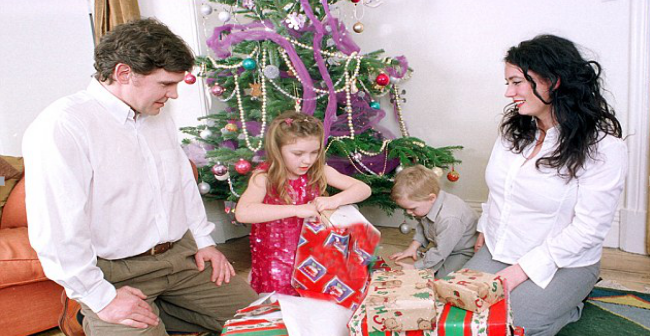
The Christmas tradition of children unwrapping presents under the tree could soon be a thing of the past. This Christmas, cash presents given to under 18s in the UK could reach almost £1 billion, with even children as young as four expecting cash gifts.
The questionnaire was carried out among 5,000 teenagers by Kids Insights. It was the first time under 18s were asked about cash gifts. Four to 12 year-olds said they were expecting an average of £68, rising to £102 each for 13-18 year-olds. Boys believed they would receive slightly more than girls, with £83 expected, compared to £82 per person for girls.
Nick Richardson, Kids Insights’ manager, said, “It may be that we are losing the traditional Christmas magic, when kids wake up to see whether their special gift is under the Christmas tree. Today’s kids don’t just know what they want, but they know where to get it from. Teens and even under 12s are increasingly able to buy the tech toys and games they want.”
The research also found a growing number of under 18s who are becoming financially independent. Thirty two per cent of younger children aged four to 12 said they would save their money in a bank account.
Andrew Hagger, of advice service MoneyComms, said, “It’s not a bad thing as long as children don’t waste the cash away. It would be great if their parents or grandparents said, how about putting a third or half into a savings account, and use the rest to buy something they really want in the sales. Putting money into savings is a great habit for children to adopt as they grow which can help them in the future.”
本时文内容由奇速英语国际教育研究院原创编写,未经书面授权,禁止复制和任何商业用途,版权所有,侵权必究!(作者投稿及时文阅读定制请联系微信:400-1000-028)
1.Why could the Christmas tradition of children unwrapping presents be a past thing?
A Children no longer like the Christmas Day.
B Children nowadays can’t wake up on such an early morning.
C Children prefer to receive the cash gifts.
D Children don’t like the traditional way of opening the presents.
解析:选C。推理判断题。根据第一段第二句的with even children as young as four expecting cash gifts可推知孩子们现在更喜欢把现金作为礼物。故选C。
2.According to Kids Insights, who would receive the most money?
A 13-18 year-olds.
B 4-12 year-olds.
C 1-4 year-olds.
D 3-8 year-olds.
解析:选A。细节理解题。根据第二段第三句Four to 12 year-olds said they are expecting an average of £68, rising to £102 each for 13-18 year-olds.可知13岁到18岁之间的孩子可能得到的钱最多。故选A。
3.What will the children do with their money according to the passage?
A They will buy whatever they like or save some in a bank account.
B They will give all the money to their parents.
C They will denote the money to charities.
D They will use the money to set up a bank.
解析:选A。细节理解题。根据第三段最后一句Teens and even under 12s are increasingly able to buy the tech toys and games they want.和第四段第二句Thirty two per cent of younger children aged four to 12 said they would save their money in a bank account.可知孩子们会用他们的钱来买他们想买的东西或存进银行账户。故选A。
4.What did Andrew Hagger think of giving kids the cash gifts?
A It is very good for parents.
B It is not a bad thing if the money is dealt with correctly.
C It is a waste of money.
D It is not good for kids’ growth.
解析:选B。推理判断题。根据最后一段Andrew Hagger所说的话可推知他认为只要合理处置得到的金钱,给孩子们现金礼物并非一件坏事。故选B。